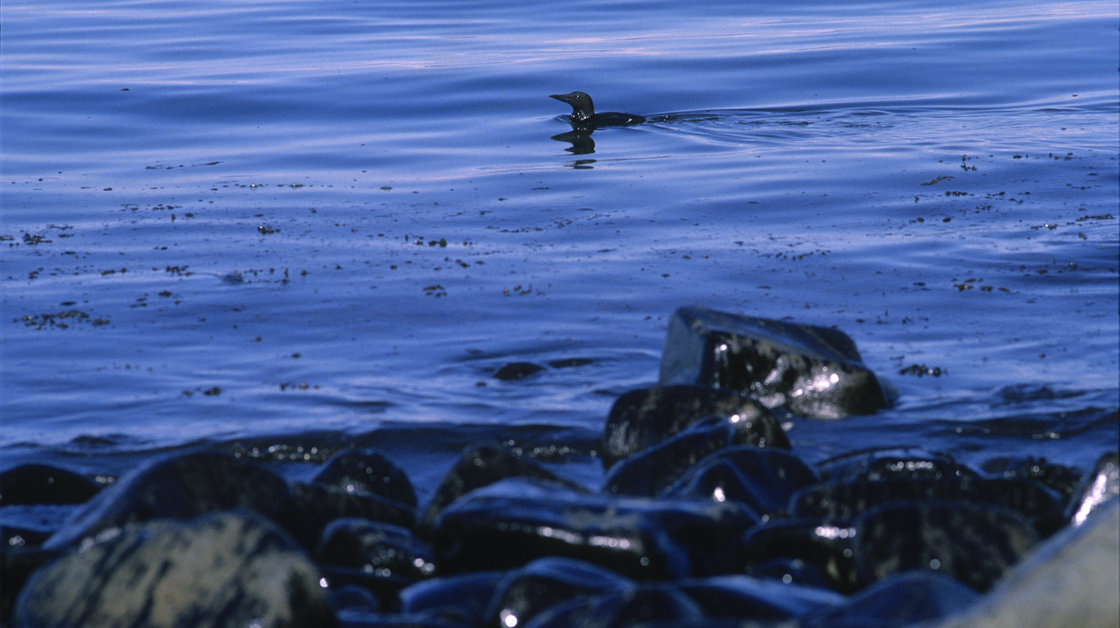
An oiled murre passes the darkened shoreline near Prince William Sound, Alaska, less than a month after the March 1989 spill. Erik Hill/Anchorage Daily News/MCT/Landov
npr.org - by Elizabeth Shogren - March 22, 2014
On March 24, 1989, the tanker Exxon Valdez struck a reef in Prince William Sound, Alaska, spilling 11 million gallons of crude oil into the pristine water. At the time, it was the single biggest spill in U.S. history. In a series of stories, NPR is examining the lasting social and economic impacts of the disaster, as well as the policy, regulation and scientific research that came out of it.
Twenty-five years of research following the Exxon Valdez disaster has led to some startling conclusions about the persistent effects of spilled oil.
When the tanker leaked millions of gallons of the Alaskan coast, scientists predicted major environmental damage, but they expected those effects to be short lived. Instead, they've stretched out for many years.
(READ COMPLETE ARTICLE)
Recent Comments